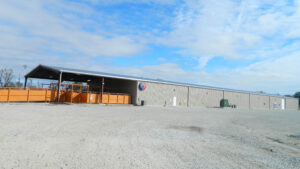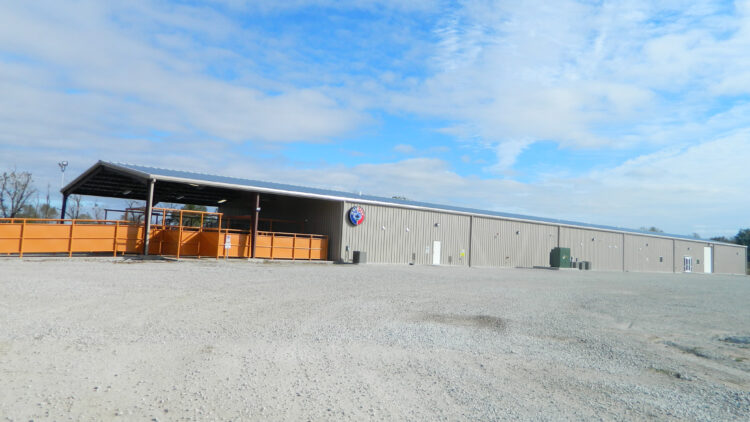For the last few years, Missouri State University’s Darr College of Agriculture has maintained a fruitful relationship with the Quapaw Nation of Oklahoma.
This relationship has resulted in sharing ideas, information and resources related to agriculture.
Who are the Quapaw people?
The Quapaw Indians are native people of Arkansas, Missouri, Mississippi and Tennessee. Forced to move to Oklahoma in the 1800s, today, the Quapaw Nation’s headquarters is in Quapaw, northeast Oklahoma. There are about 4,800 nation members.
The nation has diverse agricultural initiatives that focus on two things: food sovereignty, the right to produce their own food; and food security, access to enough food at all times.
“Feeding people is one of our mottos,” said Chris Roper, Quapaw agriculture director. “My chairman and I travel all over giving talks on our food sovereignty programs. We try to share everything we have.”
Among the nation’s agricultural initiatives are:
- Quapaw Cattle Company – It has more than 1,000 head of cattle; provides high quality, hormone and chemical-free beef.
- Goat program – It has more than 100 goats; used for natural weed control.
- Row crops – The crops spread over 2,000 acres of land and include canola, corn, soy beans and wheat.
- Meat processing plant – This 25,000-square-foot plant is equipped to process beef, bison, goat, lamb, pork and elk.
- Greenhouses – There are five operating greenhouses, with a sixth one on the way; grow 21 varieties of herbs and vegetables and produces 6,000 pounds of food each year.
- Coffee roasting facility – It imports beans from other tribes around the world to create its own custom blends.
Helping with the processing plant

The multimillion-dollar meat processing plant opened in 2017. It is the first USDA-inspected processing plant located on tribal territory that a tribe owns and operates.
MSU, along with a few other area universities, gave input for the plant’s layout and design.
Mike Klem, coordinator of facilities and support services for MSU’s Darr College of Agriculture, said the discussions resulted in the plant’s long, rectangular design instead of a classic circular design.
“The hallways are lined with glass so people can watch the whole meat processing process from the outside,” Klem added.
The plant also has a classroom, test kitchen and laboratory to promote training and education.
Klem has brought many MSU students, as well as international students and visitors, to tour the plant, and the nation’s other facilities.
Opportunities for students
According to Roper, the Quapaw Nation takes pride in youth initiatives to invest in the future and promote native history and culture. Students who visit the Quapaw Nation can see and experience many things related to agriculture, the environment, government, history and culture.
There are also internship opportunities. Several MSU students majoring in natural resources and animal science have completed internships in the nation’s agriculture and environmental departments.
“Anything they’re interested in, we open our doors,” Roper said. “With us sharing what we have, we feel that will get passed on through the generations.”
Dr. Ronald Del Vecchio, dean of MSU’s Darr College of Agriculture, commends the Quapaw Nation for establishing and maintaining agricultural enterprises with a focus on food sovereignty and food security.
“Chris Roper and the rest of the team do an exceptional job,” Del Vecchio said. “We’re grateful to have such a positive collaborative relationship with the people of the Quapaw Nation of Oklahoma.”
Paying tribute to Native Americans
November is Native American and Indigenous Heritage Month. Missouri State’s multicultural programs will host events on campus to recognize the contributions and celebrate the rich cultures of Native American people such as the Quapaws.
Events that are free and open to the public include:
- Documentary and Dialogue: Indigenous Identity – 12:30 p.m. Nov. 12, Multicultural Resource Center Annex.
- Native American and Indigenous Heritage Month Reception and Performance – 6 p.m. Nov. 16, Plaster Student Union Ballroom West. RSVP required.
- Plains Indian Hand Game – 6:30 p.m. Nov. 19, Plaster Student Union, 1st floor Atrium.


Leave a Reply